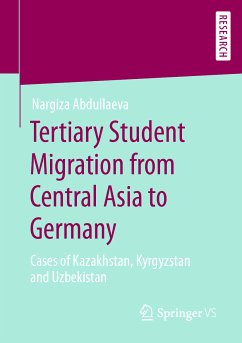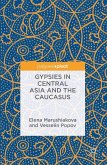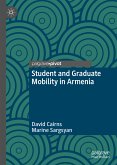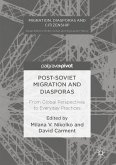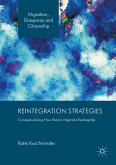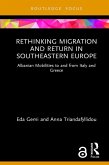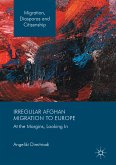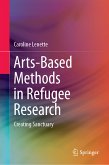Nargiza Abdullaeva examines student migration phenomenon from Central Asia to Germany. In her research she combines inimitably three levels of analysis: micro level explores Central Asian students' and graduates' individual characteristics, their life courses before and during their studies in Germany, students' return/non-return intentions after graduation in Germany and their motivations. Meso level deals with circular migration and social remittances' transfer, and the macro level looks into policy mechanisms on the part of sending Central Asian republics and Germany as a receiving country. The findings reveal that the student migration serves as a realistic channel for the out-migration of highly qualified people (brain-drain) and that the brain circulation practically does not exist.
Contents
.Terminological and Theoretical Considerations of International Student Migration
.Kazakhstan, Kyrgyzstan and Uzbekistan in the Post-Soviet Period
.Profiles and Decision-Making of Students and Graduates from Focus Countries
.Source and Host Countries' Policies Towards the Regulation of Tertiary Student Migration
Target Groups
.Scholars and students of social sciences area
.Think tanks, policy makers and government officials, professionals e.g. immigration officers
The Author
After completing her PhD thesis at Humboldt-Universität in Berlin, Germany, Nargiza Abdullaeva currently works as a senior project developer in the nutraceutical industry.
Dieser Download kann aus rechtlichen Gründen nur mit Rechnungsadresse in A, B, BG, CY, CZ, D, DK, EW, E, FIN, F, GR, HR, H, IRL, I, LT, L, LR, M, NL, PL, P, R, S, SLO, SK ausgeliefert werden.

